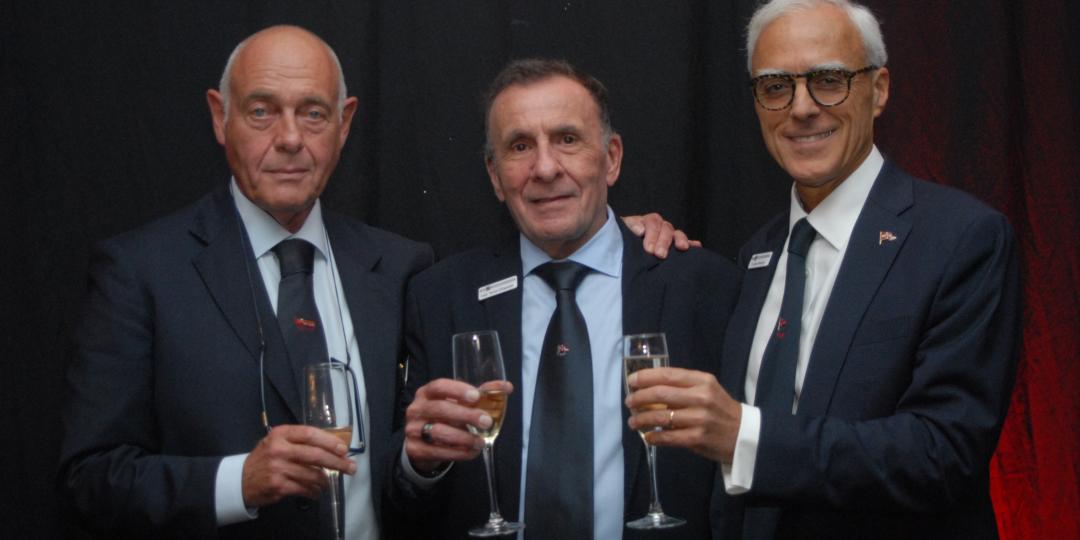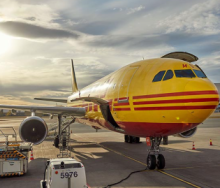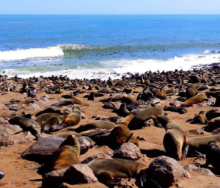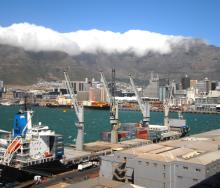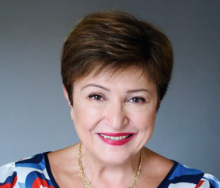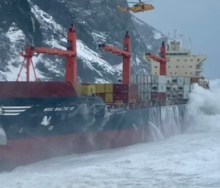Messina Line followed up its centennial celebrations three years ago by commemorating 30 years in South Africa, the first country in which the Genoa-based niche carrier established an agency outside of Italy.
The person who formalised that relationship by getting involved on behalf of Messina Line 33 years ago is Captain Tonino D’Esposito, who was present at Thursday evening’s anniversary celebrations in Sandton.
D’Esposito said: “We want to say thank you to our clients for the support we have received over the past 30 years.
“Without you, this would not have been possible.”
He then handed over to Andrea Gais, president of the carrier’s holding company, Ignazio Messina & C.
Reflecting on the past 30 years, he said: “It feels like yesterday when we decided to open our own agency in Johannesburg, Durban and Cape Town.”
Thanking various dignitaries for attending the event, including Italian ambassador to South Africa, Alberto Vecchi, Gais said Messina Line had focused from the start on shaping a close relationship with shippers.
In this regard he thanked the line’s staff for their dedicated efforts and fundamental contribution.
“Without their commitment, vision and hard work, we wouldn’t be able to celebrate this significant anniversary.
“Above all, a special thanks is dedicated to an extraordinary person, our captain Tonino D’Esposito. He is the heart and soul of the Messina family.”
Celebrations aside, the line had experienced some choppy waters in recent times, Gais said.
“Today, we are proud to say that our company has evolved significantly after navigating through a very difficult and challenging period, especially between 2006 and 2020.
“Recently, we decided to modify our strategy by transitioning from our historical roll-on roll-off (ro-ro) fleet to a fully containerised one.”
Looking at all sides of the carrier’s business, Gais acknowledged that the market disruptions of the past few years had also impacted Messina Line’s reputation as a carrier with the most reliable schedules, a reputation they would like to reaffirm.
He said for the most part this was because of port congestion.
Gais added that although the carrier was firm on its trajectory of services expansion, it remained committed to its historical market specialisation.
Speaking about their association with Messina Line, representatives from freight forwarder DB Schenker – recently acquired by DSV – and bulk liquid freight operator Leschaco, said Messina Line remained one of the most reliable carriers to deal with, easy to book and probably one of the few service providers sailing north of the equator on Africa’s east coast.
The DB Schenker representative said because of attacks on maritime vessels in the Red Sea and Gulf of Aden, including sporadic piracy at sea off the coast of Somalia, most carriers wouldn’t call at ports around the Horn of Africa.
He said for a recent shipment of flat rack containers carrying mine-related project cargo to the Port of Djibouti, they were told it would take three months, whereas Messina Line had done it in half the time.
Looking ahead, whereas Gais’ speech was based on reflection, chief executive officer Dr Ignazio Messina said challenging times lay ahead, especially insofar as operational costs related to decarbonised bunker fuel were concerned.
“If you want to buy a vessel with a capacity of around 4 000 TEUs today, you have to pay double the price compared to last March.”
Messina said the line had made significant investments in service specialisation, such as spending at least $25 million on flat rack container capability.
Another investment, reported on by Ferry Shipping News (FSN) earlier this year, involved “Terminal San Giorgio, a terminal operator in the Port of Genoa controlled by the Gavio Group, which is to be purchased by Ignazio Messina & C.”
Confirming Gais’ comment that the carrier remained committed to “historical markets”, FSN reported that, “last year, Terminal San Giorgio handled 2 350 000 lane metres of ro-ro traffic, an increase of 4% compared to 2022.”
Closing off, Messina reiterated what Gais had said, that a focus on reliability, regularity, and affordability in the face of rising costs was at the top of the line’s agenda – where it would remain.
“We are all committed to making this happen through better service and better assistance to you. Full steam ahead!”

